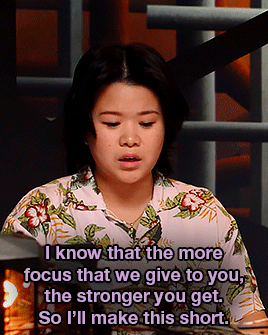#kindness and seeing even traits like guilt & shame as *necessary* parts of ourselves
Text










"Conrad's view has always kind of moved out - to think of bigger things and other people, to think of larger places. And in moving away, sometimes the things that up close are huge and horrifying, get just a little bit smaller, a little bit more right-sized, a little bit easier to manage."
#dimension 20#mentopolis#d20edit#mentopolis spoilers#alex song xia#conrad schintz#brennan lee mulligan#madam self loathing#mine **#kindness and seeing even traits like guilt & shame as *necessary* parts of ourselves#and how these *exact* traits work side by side with conscience ( ie. having a guilty conscience )#was Beautifully woven into this finale & alex knocked every interaction out of the Damn park#now i need to let my *own* “The Fix” rest ........
756 notes
·
View notes
Note
hi i saw you answer this type of asks so i was wondering, have you ever heard of a mental issue such as feeling non-stop shame no matter what you do? I thought I was a super emberassing person because I felt guilty and ashamed after most of interactions with people (don't even get me started on how I was feeling when I actually did something embarrasing...) but according to what I see/hear from some of my friends etc. they did similar stuff and don't feel the same. Idk what to do anymore (1/3)
Since this ask came in 3 parts I’m just going to put the whole thing here first before answering so that the whole context can be better understood.
hi i saw you answer this type of asks so i was wondering, have you ever heard of a mental issue such as feeling non-stop shame no matter what you do? I thought I was a super emberassing person because I felt guilty and ashamed after most of interactions with people (don't even get me started on how I was feeling when I actually did something embarrasing...) but according to what I see/hear from some of my friends etc. they did similar stuff and don't feel the same. Idk what to do anymore (1/3)
because it becomes a big issue for me. i can't talk with people about anything besides a small-talk or otherwise I will feel ashamed for at least two weeks. I can't talk about any of my issues/problems out loud because then I think I overshared and sometimes I avoid people I think I "overshared" to because I feel so much guilt. It really keeps me from doing a lot of stuff and generally i can't remember a time of my life where I wouldn't say I embarassed myself infront of someone/myself (2/3)
The only thing I found online was that it's linked with anxiety, but I 100% sure don't have anxiety. I'm actually very confident around people and I like going out and I like parties and I don't get panic attacks and I am not shy AT ALL. So it makes me wonder, maybe feeling this shame is normal? Or maybe I am just sensivite? Or is it actually some mental thing that may have a solution? Anyways thank you for reading this and i hope you have a good day (3/3)
Now that that’s all out there I have to say this was a really interesting ask so thank you so much for opening up about this!
I will be totally honest I do find it quite surprising that you mention not identifying with anxiety or anxious traits at all given how strong your feelings of shame, guilt and embarrassment seem to be. Of course in the end you know yourself best so I’m not trying to contradict you here or anything.
However, I would like to suggest to maybe keep an open mind about it. Sometimes we have a very fixed idea of what something means or is and we don’t see how it applies to us until it does. This may not apply to you in the end but I know for myself that for the longest time the term adhd meant absolutely nothing to me and I would have never thought it would apply to me. But now that I actually know what adhd is and looks like and have talked to other people with it I see just how much it totally is me 100%. Again, this might not be your case, and honestly if it’s the label anxiety that bothers you then we can skip that and focus on the rest of the issue at hand.
I can’t say that I recognize any specific mental issue just with what you’re describing, but honestly having a set diagnosis or label for things might not be entirely necessary either so I’m going to work with what I’ve got.
First things first I want to reassure you that feeling shame, in essence, is not a bad or abnormal thing. All feelings have a reason and are allowed to exist. It’s when those feelings become excessive and start to take over your life that we start to question the presence of a bigger problem. In your case I’m fairly certain I can say that it seems you show stronger and more intrusive feelings of shame than the average person does. That doesn’t mean I think you’re broken or wrong or anything, just that that’s something you personally deal with, just like we all have our issues we also deal with.
The main thing that sticks out to me is that I’m very curious where all this shame, guilt or embarrassment come from. You might want to look into the term “cognitive distortions”, because I think you might see yourself in those. To put it simply, a cognitive distortion is when we convince ourselves of something that isn’t true or doesn’t reflect reality. In your case, it sounds like you convince yourself that you did something wrong when you overshare or do something that you feel is embarrassing, and as a result you feel shame.
The reason cognitive distortions are so strong is because the thought patterns are wrapped tightly in emotional baggage. By this it can mean that you have had personal experiences in your past that have greatly affected you (or even current situations still going on). In other words, someone somewhere at some point said something that stayed with you and became a thought pattern that causes an strong emotional reaction. How strongly someone reacts emotionally is a personal to each individual and is often described by how ‘sensitive’ a person is. In the end what sensitive really means is just how strongly are you affected by what happens around you (by events or what people say or what you believe they are thinking).
By knowing yourself well you’re better able to see what is more a you issue (aka your own emotional reaction) and what may actually be linked to the specific experiences you’ve had (like the type of upbringing you had).
So to come back to cognitive distortions. The good news is basically everyone has them to some degree. For some people though they’ll have a lot more and they’ll have a bigger impact in their life, which just might be what you’re dealing with.
Another good thing is that there are ways of working on cognitive distortions. One thing with that though is that you likely can’t go at it alone at least not completely. The thoughts in your head can seem very convincing after all, trying to not believe them when you’re the one who created them in the first place can quickly turn into rocket science. This is where having someone to talk about these kinds of things is super important. Sometimes all it takes is to say it out loud to someone else and hearing it to realize “hey, you know what, that thought makes absolutely no sense”. Other times the thoughts are harder to unstick and really require another person to be able to (gently and lovingly) call out your flawed logic and help you work through untangling the thoughts and emotions.
You’ve mentioned that talking about your issues/problems is something that is hard for you, so I feel like that would likely be one of the first hurdles you’ll want to focus on. You don’t need to have a bunch of people to talk about this kind of stuff either, even just one or two people can be enough to get the ball rolling. What you’re going to be looking for in someone to help with this is the type of person I like to call ‘sounding boards’. You basically want someone you trust and who is willing to listen to you just rattle off whatever thoughts are going through your mind, no matter what those thoughts may be. You’re going to want someone you feel comfortable with and who is able to reassure you that you aren’t oversharing if you talk about this stuff. I know non judgmental people can be hard to come by but they exist. Keep in mind that this is also where professionals such as counselors and therapists are very helpful as they are trained specifically for these kinds of things.
Now if the thought of talking to someone about this feels to hard or scary that’s okay. Putting all of this into an ask may already be a huge step for you so don’t feel the need to yeet yourself outside of your comfort zone all at once. This is why the online format is so nice, it can offer you a level of anonymity if that’s something that personally helps you feel comfortable enough to open up about these kinds of issues. You can also simply start out by writing your thoughts out in more of a journal style if you aren’t ready to share it with someone else just yet. However I do suggest that you try to find someone if you can because that is more likely to do the most help in the end.
Now for some shameless self promo where I say that I am more than willing to be an ear to you or anyone else who may need one and my dm’s are always open. I’ve been know to be a pretty decent sounding board and I assure you that I maintain a strict confidentiality clause (morally if not professionally). I’m not here to judge, I’m just here to listen, because we all deserve that.
I hope this could help in some form or fashion and as always thank you guys for trusting me with your asks and feel free to send them anytime. Take care all you wonderful people and remember that you are valid and that you matter <3
1 note
·
View note
Text
Sufi Psychology Part 3 - Sufis and Human Energy centres.
2) Latifat-al-Qalbi: (the Heart); This Latifa is located in the left of Chest and is dark yellow in colour, In this Latifa, a person views his deeds both good as well as evil. By awakening it a person acquires the knowledge of the realm of Jinns.
In a Nutshell - (Nafs Al Lawwama - The Blaming Self);
Light or Colour of Aura: Dark Yellow.
Located: left of Chest - Liver and related to the digestive system.
Soul: Ruh Nabati linked to Vegetable Soul. (see below)
Traits: conscience, capacity for self-observation.
Habits: backbiting, trickery, conceitedness, hypocrisy, self-consciousness, guilt, fearfulness, wishful thinking, intense desire to please others.
Quran Ref: "And I swear by the reproachful soul!” (75:1-2)
Healing Dhikr: is to Repeat Ya Allah - O The God.
*Note -The Vegetable Soul: It is located in the liver and related to the digestive system. At this level transmission of energy and transmutation begins. Nourishment and growth is one of its functions. To have a healthy vegetable soul, we need healthy nourishment (at physical, emotional, intellectual and spiritual levels)
Its Healing Remembrance or Dhikr is repeating the Name: Ya Allah (God). This is the self in its original state of birth into the world as Allah says, "By the One who brought the self to equilibrium inspiring it with its transgression and its consciousness." (91-7:8)
This is the self that has been touched by Allah's Mercy so that when it commits a sin or falls into disobedience, it blames itself and turns to forgiveness and repents to its Sustainer. Then it holds on to obedience until it slips back into sin then it turns to forgiveness and repentance and so on.
It has grasped what the Prophet (peace be upon him) said, "All humans are prone to sin and the best sinners are those who repent."
It is a self that is in constant fluctuation between obedience and disobedience. One time it is heedless and falls and another it is aware and resists.
This is the natural station which we start from at birth and from there we descend or ascend. Its sign is the fluctuation between the characteristics of the people of this world and the people of the next world.
It is not in the same evil condition as the Commanding Self but the two desires of immortality and sovereignty are still active in it although in a much reduced or weakened condition. This is the first stage of salvation for the self and the first step toward its purification and success.
The word Qalb, stands for heart. In Sufi terminology, this spiritual heart (not to be confused with corporeal organ) is again variously described. Some consider it to be the seat of pure vision. Others consider it the entrance of Ishq or Divine love.
Some thinks that it is the battleground of two warring armies: Those of nafs (where nafs-i-natiqa/rational soul is equated with aql/intellect, the "better", rational part of the soul as opposed to animal/passionate ), and ruh/spirit, who will be the object of analysis in the next point.
In short, cleansing of the Qalb or heart is a necessary spiritual discipline for salik (traveller) on the Sufi path. The term for this practice is Tazkiah-I-Qalb and the aim is the purging of everything that stands in the way of God’s love or Ishq-e-Khuda.
Recitation of Kalima or the name of Allah/ Ya Allah is practised by the seekers To awaken this Latifa. When the name ‘Allah’ vibrates in the heart, an awareness of Right and Wrong, and wisdom follows. It is then called Qalb-e Salim. (the content Heart).
Then the status of the meditation by Qalb changes its direction towards God; it is called Qalb-e Minib (the penitent Heart). This heart can prevent a person from mischief, but it cannot make a right judgement. When the theophanies (Tajalliyat) of God begin to fall on the Heart, it is called Qalb-e-shahid or the witnessing Heart. Qalb and Nafs form the "Rooh-e-haivani" (Animal Soul). This part of the soul has the record of every activity of life.
2. Nafsi Lawwama - ( Blaming Self or Self-accusing soul)
This is the second step in the development of man, when man becomes aware of his actions, is able to differentiate right from wrong, and regrets his wrong doings. Yet he is not able to totally stop doing wrong because it is very difficult to break the habits of his previous state.
He tries to follow the obligations of his religion and he prays, fasts, pays alms and tries to behave properly. But he wants to be known as a reformed person. He publicizes his piety, his good deeds, and expects appreciation from people. This makes his behavior hypocritical. Sometimes he realizes this, regrets it, and tries to change. Hypocrisy, a major sin, is the principal danger in this state.
There are two other grave dangers as well: Arrogance and Anger. Every little attempt to be good, compared to the previous state, seems like a major achievement. So we think we are the best, and get angry with others who do not seem to respect us. Arrogance, lying to ourselves, hypocrisy, anger, and intolerance are the soldiers of the devil.
At the level of Nafsi Lawwama we are (not safe from the devil), who injects his character of arrogance into our veins and whispers into our ear: “You are as good as your teachers now; not only do you know as much as they do, the way you behave is better. If they were able to apply what they teach in their own lives they wouldn’t be half what you are.
You don’t need their preaching or their advice. Now let people see your wisdom and your deeds so that you will be an example to them.” Not only the whisperings of the devil, but all worldly life, is against the seeker at this stage. Certainly the world cannot lose its attractiveness for him; it calls to and tempts him.
If the resolve of the seeker is weak, he will be afflicted with arrogance, not listen to good advice, and in fact, fight with the ones who wish for his well being, thinking they are belittling him and behaving in a superior manner.
In anger, he may attempt to do much greater deeds than he is incapable of, and fail. Failure will further anger him. His mood will become dark, disappointed; he will think he took the wrong way, that he was better off before, and he may blame the ones who led him to this Path, falling back to his previous condition of being an animal in human shape.
If he is warned at the beginning of the second step of Nafsi Lawwama of these dangers, and if he is intelligent enough not to release the hand which leads him, and if he follows the advice on how to fight the three enemies of hypocrisy, anger, and arrogance, he will pass this stage quickly. The longer one lingers in this transitory stage, the worse will be the trials.
The cure for hypocrisy is to realize how the value of everything in the world, including the opinions of others, is temporal, inconstant and subjective, changing from minute to minute, from place to place, from person to person, and finally disappearing. Therefore, one should opt for that which is permanent, eternal, and powerful instead of something which may be here now and gone tomorrow.
What fool lights a candle when the sun is out? Do not count on the respect and the praise of others, and do not fear them. For it is said, “Whoever praises you is your enemy because he is the ally of your enemy, and whoever points out what is wrong with you is the enemy of your enemy.”
The cure for arrogance is to remember that your beginning came from a drop of semen from your father and an ovum in your mother’s belly, and that your end will be as a rotten corpse in the ground. Beauty, strength, intelligence, will soon dwindle and disappear. All your fortune, properties, reputation, and friends will be excluded when you are lowered alone into your tomb. Your prayers, piety and good deeds, if performed to impress others, will evaporate, and worse still, may turn against you.
Realize that all you have, including your body and your very life, is not yours, but lent to you and entrusted to you by your Creator. Your actions are also His if they are good, and when they are bad, it is you who are tyrannizing yourself. Offer thanks for everything, and feel shame your wrongdoings; then you will be humble. The fall of the one who stands low is much less painful than the one who falls from high.
The cure for anger is basically accomplished if you can cure your arrogance. It is the arrogant one who becomes angered by adversity, or even by lack of sufficient rewards which he thinks he is owed. The negative emotion of anger, when it flares up, is faster than the rational effort to suppress it. Once anger has caught fire it is difficult to extinguish. Like fire, it burns all that is human in us; compassion, love, gentleness, generosity, the ability to communicate, to think of consequences, and intelligence are all reduced to ashes. All that remains is a dangerous wounded wild animal.
As a remedy to recall and remember our humanity, The Messenger of Allah (peace be upon him) suggests that when anger strikes, immediately you should change your posture. If you were standing, you should sit. If you were sitting you should fall to your knees. It is difficult to shout and curse in the most humble position of kneeling.
Or you should lie on your back and pray: “Oh Lord, enrich me with knowledge, beautify me with kindness, give me the gift of piety and the fear and love of You and sanity and health, Amin” Or you should go and take ablution with cold water.
If we could avoid these dangers, with Allah’s will and the guidance of our religion, and the help of our teacher, and our wish to advance, we might rise to the third level where we receives the Lord’s inspirations
10 notes
·
View notes
Text
How to… make mistakes

Am ddarllen hwn yn Gymraeg?
Dealing with mistakes is a difficult situation for everyone involved – but they also highlight areas for change and growth. Susie Ventris-Field and Amber Demetrius from the Welsh Centre for International Affairs (WCIA) ask why we struggle so much to see mistakes as an opportunity for learning.
According to a recent linked in survey, 94% of employees list ‘learning and development’ as their chief reason for staying with a company.
However, there is one area where all organisations struggle to maintain morale and address learning: when a mistake has happened.
Dealing with mistakes and complaints is frequently a very difficult situation for managers, employees and clients – it’s something we dread.
But why can’t we take pleasure in the valuable opportunity for learning that such situations present? Here is an opportunity to improve – why should it be fraught with such anxiety?
Culture change
The answer to this paradox lies in the perspective we take culturally towards ‘mistake making’.
As children, we receive clear signals that there is a ‘right answer’ and that our worth is attached to our ability to find it – in school, socially, in culture and even within our family lives.
For many of us, right answers have been synonymous with compliments, promotions and general success.
By way of contrast, our mistakes often bring with them difficult conversations, additional work and feelings of inadequacy.
The voluntary sector is not immune to this trend. Despite our desire to work with compassion and professionalism, we frequently deal in situations where pressures of both time and communication lead to errors that nobody is comfortable with dealing with.
Fears of damaging a company’s reputation underpin a well-founded fear of mistakes. We like to think that the professional structures we work within offer us protection from these kinds of labels but often the reverse is true.
It’s hard to value curiosity when mistakes make us feel like a failure. And this is the issue with our current perspective.
Inherently valuable traits like creative thinking, innovation and the ability to adapt are all born from our ability to make mistakes and work with what we have as a result.
This was the process by which we discovered penicillin, the x-ray, the microwave and every other scientific advancement.
Therefore, it is critical that we ask ourselves how to improve our approach and celebrate the journey of making mistakes.
Shame, guilt and blame
Crucial to developing a more positive approach to mistakes is understanding the feelings that surround them.
When things go wrong, we typically tend to feel one of three emotions: shame (it’s all my fault), blame (it’s all their fault) or guilt (I need to make it better).
Shame is by far the most difficult of the three because it is so linked to our self-worth. When we feel ashamed, we feel we were the mistake, we are useless, it is a value statement of us.
By way of contrast, guilt allows us to understand the mistake was one error that we can make up for. Individuals feeling guilty are often doing extra to learn because they understand that they can, whereas individuals feeling ashamed are searching for ways to hide their mistake, or avoid dealing with their mistake, or pretending their mistake didn’t happen at all.
Blame and anger are linked to that quest: shame makes us small and worthless, but blame makes us strong and powerful. Often, individuals who are blaming others do so for fear of the shame involved in confessing their accountability.
Growth mindset
All of this begs the question: what can we do to change our attitude to mistakes and learning?
A large part of the answer lies in embracing the concept of a Growth Mindset. Growth Mindset is defined as ‘a belief that your basic qualities are things you can cultivate through your efforts’ (Carol Dweck).
Where this idea is immensely powerful is by its ability to shift the focus away from the individual and towards the work that needs to be done.
Students who embrace growth mindset have been shown to do better academically (and incidentally, have better social skills and personal management) because they understand that everything about them could improve with effort.
On that basis, if we could educate organisations about the emotions that come with mistakes and the necessary empathy and understanding that is essential to applying growth mindset, we could see the beginnings of a cultural readjustment.
How do we do it?
If organisations are to apply a growth mindset, it would be necessary that growth and learning are a core value for everyone in the team.
Frequently, it is new staff and junior staff who are embarking on the most learning/mistake making while the older members of the team are far less vulnerable.
This is an area that could be addressed through a varied professional development program and cross skilling with members of the team.
By the same token, policy is a valuable area to look at when addressing mistake making.
If your company has core values, one of those values might consider positive ways of addressing mistakes such as a mentoring system, informal communication tools or simply an agreed empathetic approach.
Finally, recognition of the courage that it takes to innovate or be willing to take on feedback is essential. As Dweck describes growth mindset is understanding ‘that was really hard. I loved it.’
With so many advancements having taking place in the last fifty years, mistakes are increasingly becoming part of a journey of discovery and we are holding the keys – through mutual courage and support – to unlocking one another’s potential.
Who knows where we might be in fifty more years, when our fear of erring is no longer standing in our way…?
0 notes